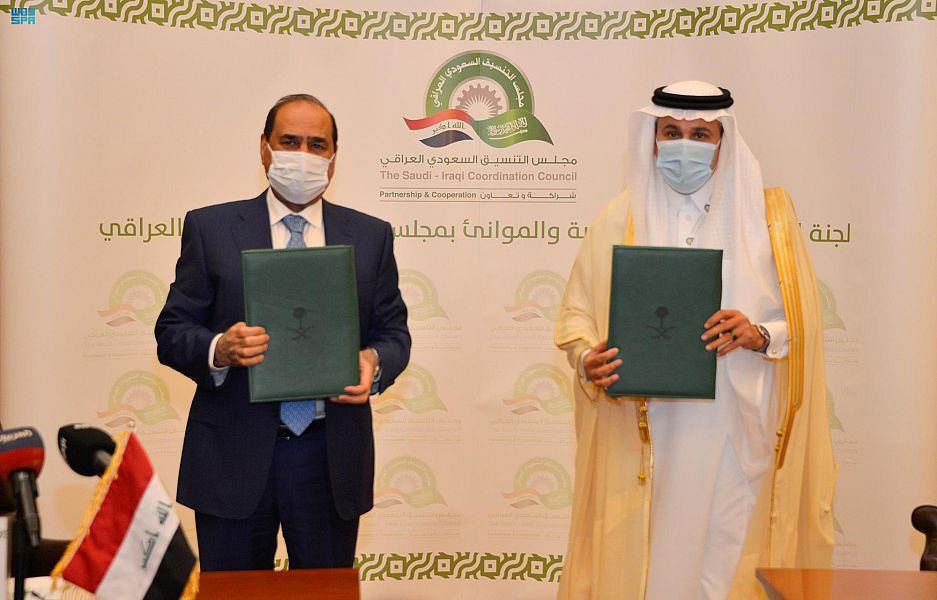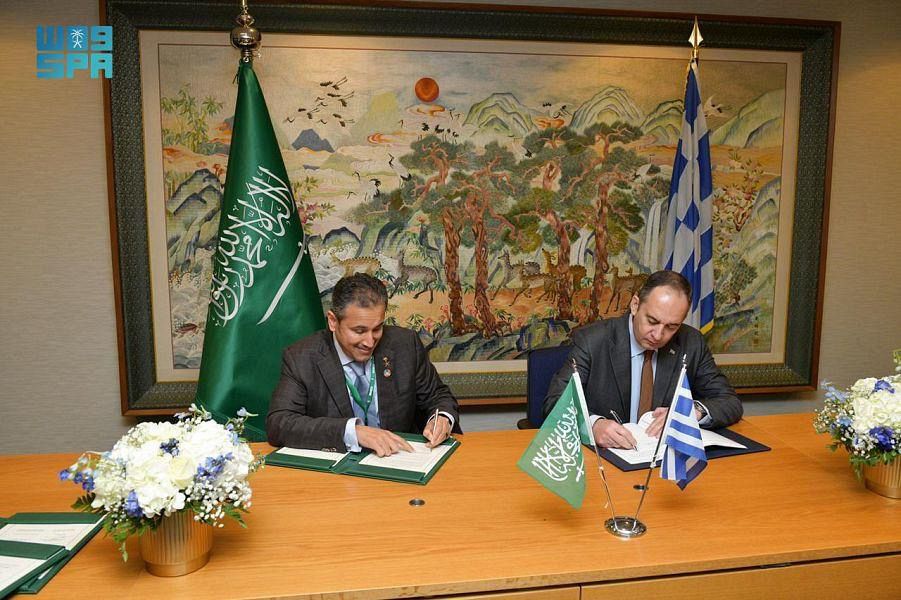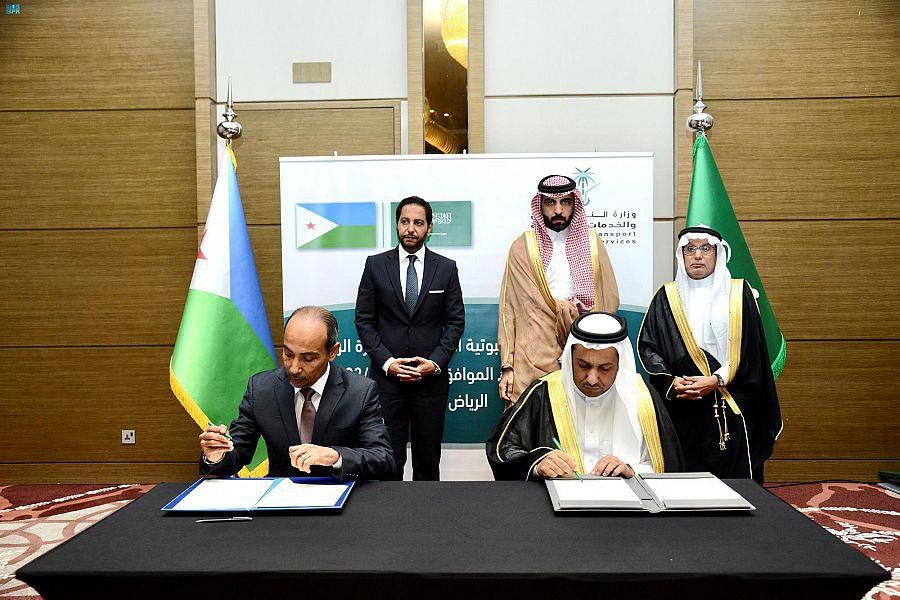
Reinforcing bilateral ties between Saudi Arabia and Iraq, the two countries signed a maritime transport cooperation agreement on Thursday.
Saudi Minister of Transport and Chairman of the Transport General Authority Engineer Saleh bin Nasser al-Jasser and the Iraqi Minister of Transport Nasser al-Shibli signed the agreement during a meeting.
The agreement is the beginning of cooperation between the two countries, Iraqi ambassador to Saudi Arabia Abdul Sattar Hadi Al-Janabi confirmed to Asharq Al-Awsat, adding that transport is one of the most critical sectors on which all other activities depend.
Soon, important meetings will be held in Riyadh to activate all the agreements included in recently inked MoUs, the ambassador added.
He revealed that parties, during consultations, agreed to open an air route between the two countries and to study the expansion of trade exchange.
Al-Janabi reaffirmed that Iraq has a strategic geographic location.
“There will be fruitful cooperation with Saudi Arabia in several sectors in the future,” said Al-Janabi.
In 2017, Saudi Arabia and Iraq had established the Saudi-Iraqi Coordination Council to promote bilateral relations and cooperation in various fields such as economy, development, security, investment, tourism, culture, and media.
As for the maritime agreement, it is part of a series of actions that the Saudi-Iraqi Coordination Council will implement to enhance relations between the Kingdom of Saudi Arabia and Iraq at the strategic level and to open new aspects for cooperation in various fields.
The agreement aims at supporting the maritime transport field, one of the pillars of the economic development in the world, which requires developing commercial naval navigation.
It would also increase the movement of commercial ships to transport passengers and goods, encourage commercial exchange, facilitate the access requirements and procedures to the ports of both countries with their ships, and enhance the exchange of expertise and technologies between marine companies, institutions and institutes in this field.
The agreement also includes treatment methods for ships of both countries regarding access to their ports, their stay and departure, and in cases of emergency and marine accidents in territorial water.
The deal also aims to offer facilitation for maritime transport companies, ships, and personnel, and mutual recognition of documents of ships and sailors for both countries, and coordinating positions of both countries in international maritime conferences.










